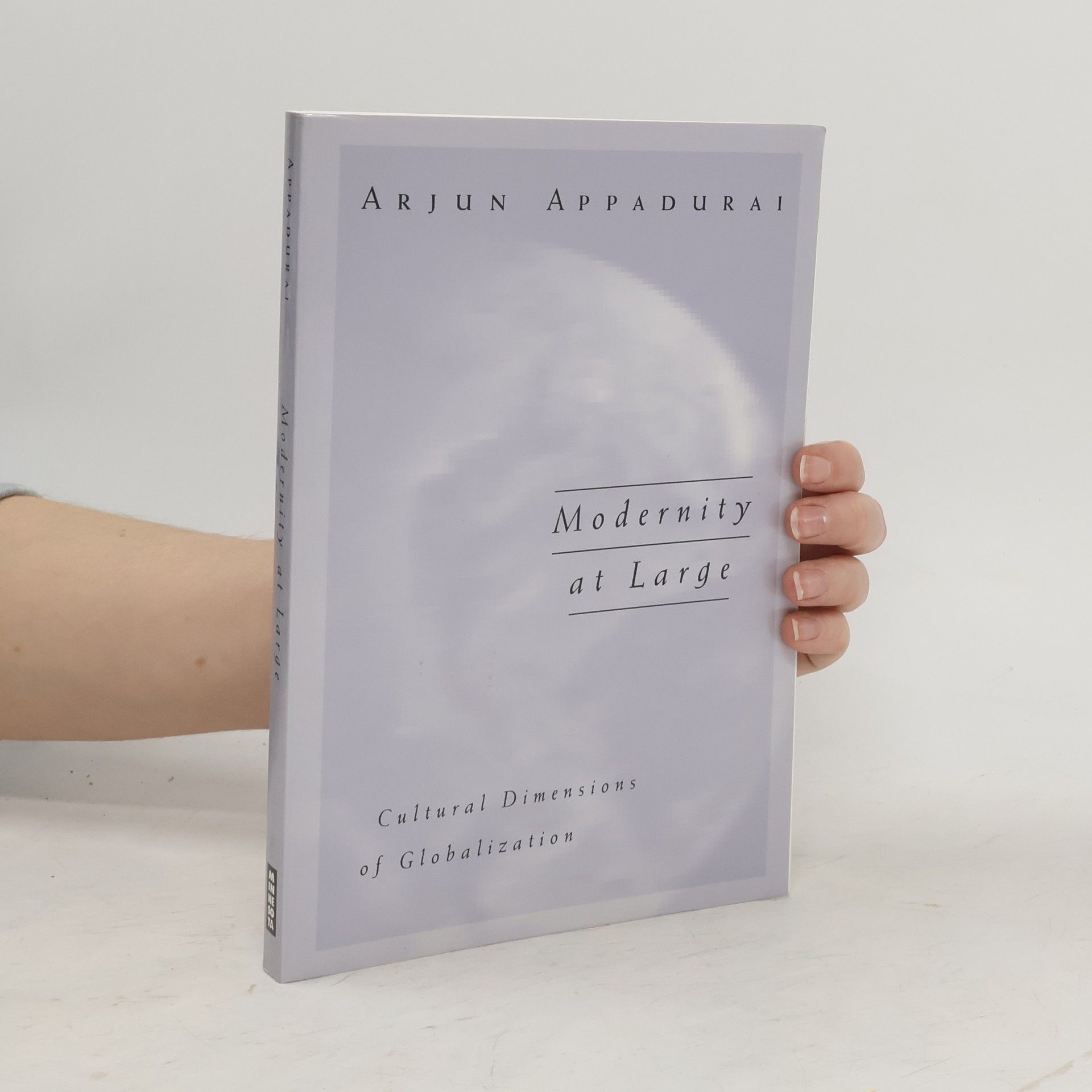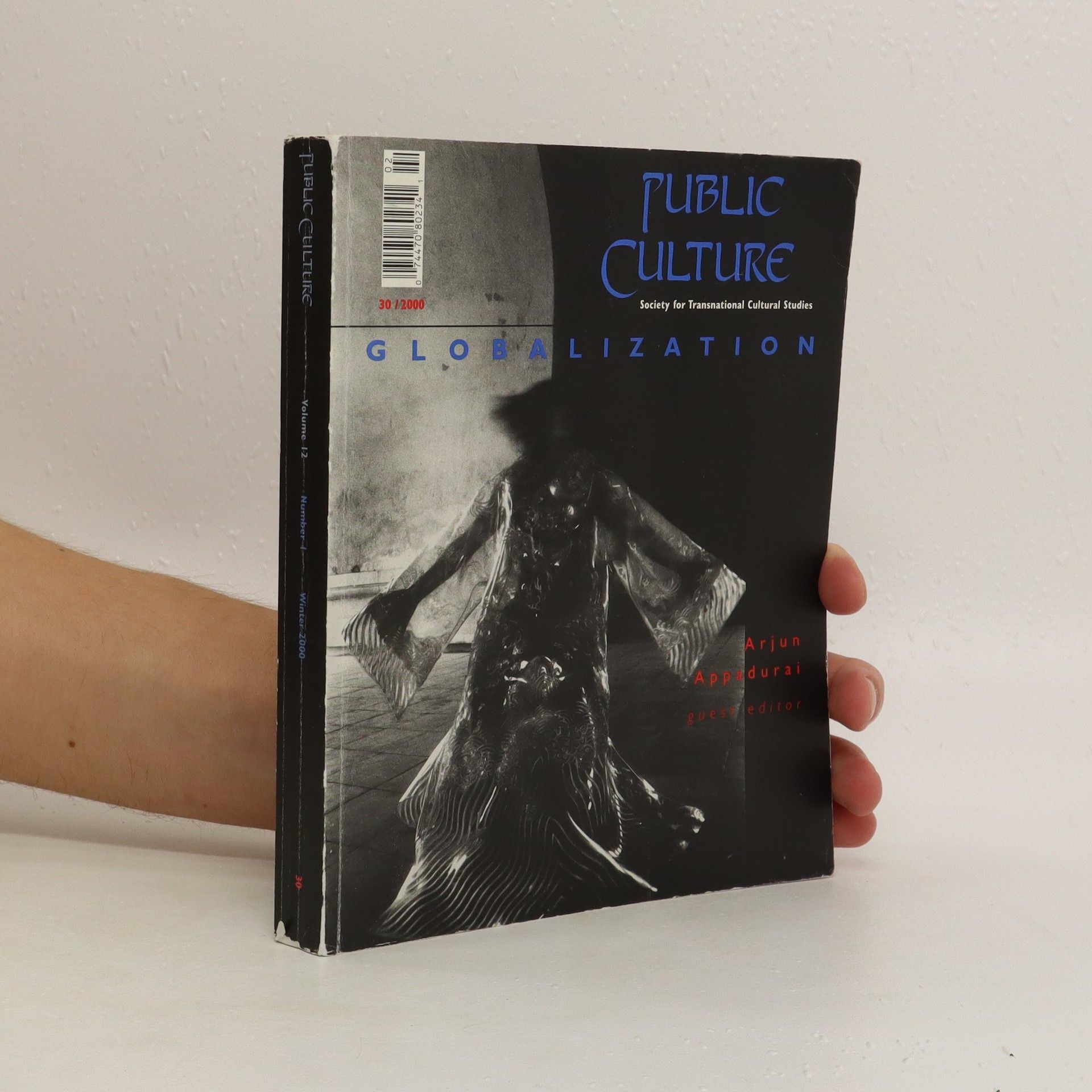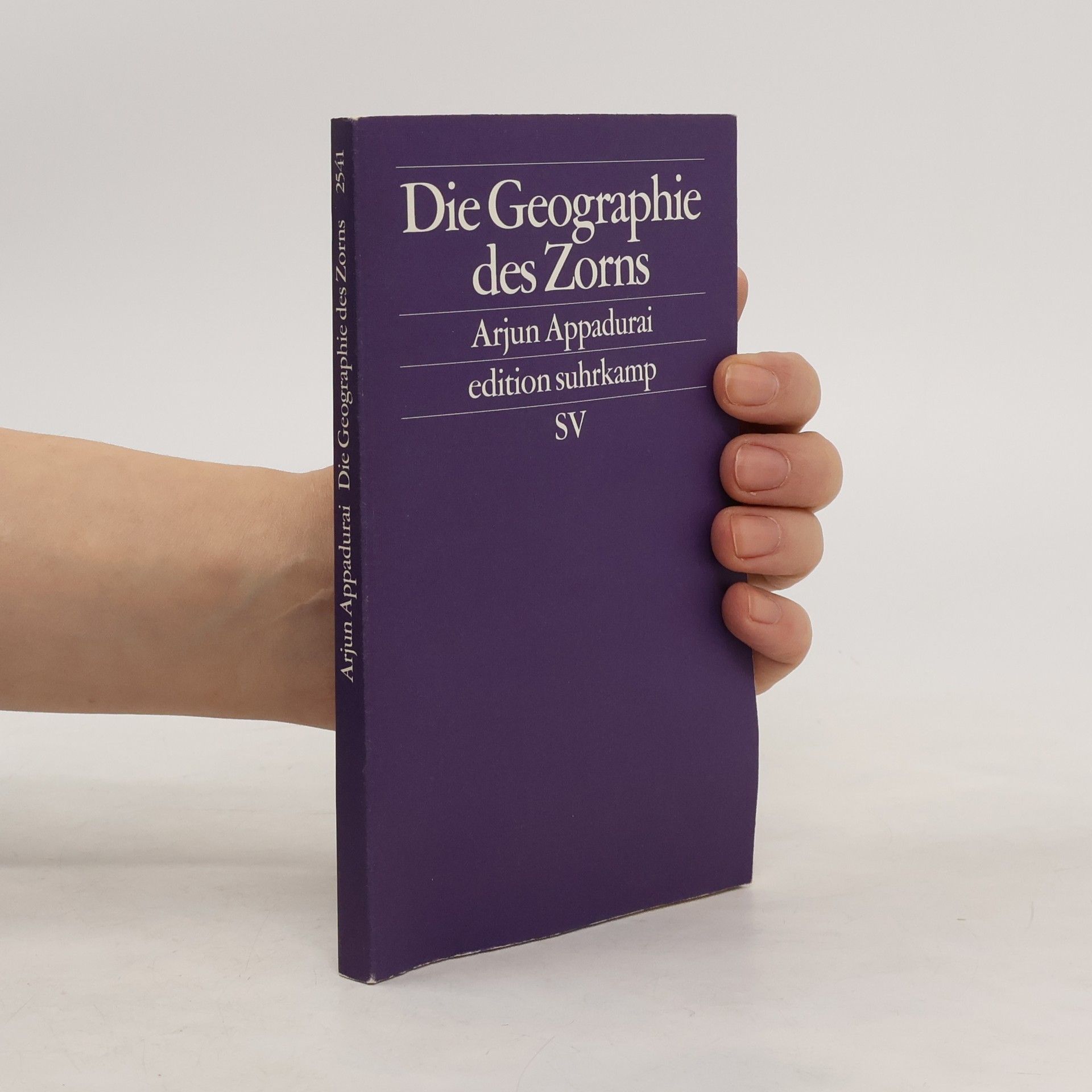This collection of essays by Arjun Appadurai based on his fieldwork in rural Maharashtra, India, in the early 1980s is one of the few anthropological treatments of agricultural reasoning. In conversation with agronomists, economists, and development anthropologists, the essays explore the ways agricultural technologies, changes in how surface wells are dug and managed, the provision and sharing of food and management of time, issues of scale in studying rural lives, and how local knowledge is formed and transformed reveal the distinctive character of rural Indian sociality. Locating these features in the context of “subsistence capitalism,” Appadurai draws our attention to the importance of relational practices and the pull of autonomy. These essays offer a close look at an agrarian society at the pivotal moment of its encounter with capitalist transformation and study ideas of measurement, sociality, and independence.
Arjun Appadurai Pořadí knih (chronologicky)
Arjun Appadurai je indicko-americký antropolog, který je uznáván jako významný teoretik v oblasti studia globalizace. Ve své antropologické práci diskutuje o důležitosti modernosti národních států a globalizace. Jeho práce se zabývá tím, jak se globální toky médií, technologií a lidí formují a jak naopak ovlivňují místní kultury a identitu. Appaduraiho vhledy poskytují klíčové porozumění dynamickému vztahu mezi globálním a lokálním v současném světě.







Versagen
Scheitern im Neoliberalismus
Technologie ist immer effektiv, der Zugang zu Informationen unbegrenzt, und Banken sind »too big to fail« – dieser Mythos des Kapitalismus ist so wirkmächtig wie falsch. Das Finanzsystem hat sich von seiner globalen, mit Steuern notdürftig gekitteten Krise nie erholt. Geld ist nichts mehr wert, unsere Abhängigkeit von Wall Street und Silicon Valley verstärkt sich, je schlechter das System funktioniert. Und in der Gig Economy von Uber bis Airbnb verschärft sich der Druck: Jeder Erfolg wird überwacht, jedes Scheitern geahndet. Bei technischen Geräten hingegen ist das Versagen vorprogrammiert – dass sie möglichst schnell kaputtgehen, gehört zum Geschäftsmodell. Der renommierte Ethnologe Arjun Appadurai und die Medienwissenschaftlerin Neta Alexander fordern in ihrem Buch eine umfassende Neubewertung dessen, was Erfolg und was Versagen ist. Sie plädieren für Entschleunigung, Entmonetarisierung und eine neue Kultur des Scheiterns.
Failure
- 120 stránek
- 5 hodin čtení
Failure explores the deeply troubling paradox by which the more technological and financial systems fail us, the more dependent on them we become. The authors propose a theory of habitual failure by exploring crisis and divides - yet failure is not a self-evident quality. It requires a new understanding of why it is so quickly forgotten--
In this provocative analysis of a pivotal event, renowned scholar Arjun Appadurai contends that the 2008 economic collapse was ultimately a failure of language, despite being driven by greed, ignorance, and poor regulation. He delves into the realm of derivative finance, which has become central to trading and a major focus of blame for the crisis. Through incisive argumentation, Appadurai navigates this complex world, drawing on thinkers like J. L. Austin, Marcel Mauss, and Max Weber to illustrate how linguistic failures contributed to the disaster. His analysis unfolds in four steps. First, he emphasizes the significance of derivatives as a key innovation in finance. Next, he defines derivatives as written contracts predicting future asset prices, highlighting their nature as promises. In the third step, he utilizes Mauss’s concept of the gift and Austin’s theories on performatives to explain how derivatives exploit the linguistic power of promises, transforming money into an abstract commodity value. Finally, he identifies a critical feature of derivatives, particularly evident in the housing market: they can create promises that other promises will be broken. This characteristic fueled a contagion throughout the market, leading to the systemic liquidity crisis we now recognize. With clarity, Appadurai connects the numerical force of money to the linguistic force of our commitments, shedding light on a crucial aspect of t
The Future as Cultural Fact
- 336 stránek
- 12 hodin čtení
Acclaimed author presents a decade's research toward creating an anthropology of the future.
Výbor teoretických studií a esejů je čtvrtým svazkem série Postkoloniální myšlení. Tato série má volně chronologickou návaznost a obsahuje jak překlady ucelených knih (Frantz Fanon – Černá kůže, bílé masky a Homi K. Bhabha – Místa kultury), tak dvě antologie vybraných textů. Stávající svazek se zaměřuje na následující období od osmdesátých let dvacátého století po současnost. V průběhu této doby se postkoloniální reflexe autorů a autorek působících na převážně anglo-amerických univerzitách rozvinula napříč celou sférou humanitních disciplín. Tato reflexe přináší kritickou revizi filosofických, historických, antropologických, literárních, kulturních i genderových či jinak předsudečně zaměřených reprezentací, identit a narativů/vyprávění dějin. Klíč pro pochopení současné situace nejen v kolonizovaných zemích, ale také v kontextu globalizace je možné nalézt v rozličných proměnách pojmu postkoloniality. Sám tento pojem není však nikterak homogenní a byl či je často problematizován pro svoji historickou neurčitost, teoretickou nezakotvenost či obecně pojmovou proměnlivost. Smyslem výboru je českému čtenáři nabídnout pluralitu přístupů a kritických stanovisek teoretického postoje, jenž vedl ke změně společenskovědního paradigmatu v posledních třiceti letech.
Nalini Malani, In search of vanished blood
- 96 stránek
- 4 hodiny čtení
In Search of Vanished Blood ist ein Künstlerbuch der dOCUMENTA (13) zu Nalini Malanis zeitbezogenen Werken. Im Kontext der zunehmend schwierigen politischen Situation der frühen 1990er-Jahre gehörte sie zu den ersten Künstlern in Indien, die sich vom traditionellen Tafelbild abwandten und »vergängliche« Wandzeichnungen, Theaterstücke, Schattenspiele oder Videos schufen. Malini wurde damit zu einer der einflussreichsten zeitgenössischen Künstlerinnen ihres Landes, sie brachte ihren dezidiert feministischen Standpunkt visuell zum Ausdruck und stellte damit überlieferte Ikonografien und hochgeschätzte kulturelle Stereotypen infrage. Ihr Standpunkt ist urban und international, sie verurteilt unnachgiebig jenen zynischen Nationalismus, der die breite Masse ausnutzt. Ihre Kunst ist exzessiv, überschreitet die Grenzen herkömmlicher Erzählweisen und Konventionen und setzt Dialoge in Gang. Ausstellung: dOCUMENTA (13) 9.6.–16.9.2012
Arjun Appadurai ist einer der renommiertesten Anthropologen der Gegenwart. Mit Die Geographie des Zorns liegt nun eines seiner wichtigsten Werke erstmals auf deutsch vor. Appadurai beschäftigt sich mit der Dialektik der Globalisierung: Während die Jahre nach dem Fall der Berliner Mauer einerseits eine Zeit der Demokratisierung und der weltweiten Angleichung von Instutitionen waren, erlebten wir beispiellose Exzesse der Gewalt: den Völkermord in Ruanda, die Bürgerkriege auf dem Balkan, die Anschläge des 11. September. Angesichts der drohenden kulturellen Homogenisierung erwacht ein »Narzißmus der Minderheiten«; wir leben – so Appadurai – in einer »Kultur des Kampfes«.
Offering a new framework for the cultural study of globalization, Modernity at Large shows how the imagination works as a social force in today's world, providing new resources for identity and energies for creating alternatives to the nation-state, whose era some see as coming to an end. Appadurai examines the current epoch of globalization, which is characterized by the win forces of mass migration and electronic mediation, and provides fresh ways of looking at popular consumption patters, debates about multiculturalism, and ethnic violence. He considers the way images--of lifestyles, popular culture, and self-representation--circulate internationally through the media and are often borrowed in surprising (to their originators) and inventive fashions.
The study delves into the intricate politics surrounding worship practices at the Sri Partasarati Svami Temple, an esteemed ancient Sri Vaisnava shrine in India. It explores the interplay of religious rituals, community dynamics, and cultural significance within the temple's historical context, offering insights into how worship shapes and is shaped by social and political factors. Through this examination, the work highlights the temple's role in the broader landscape of Sri Vaisnava traditions and its impact on local and religious identity.



